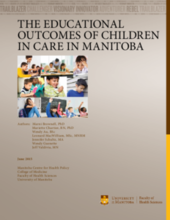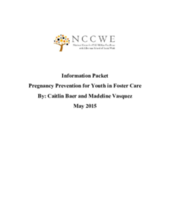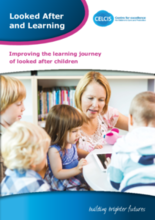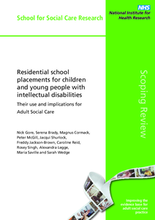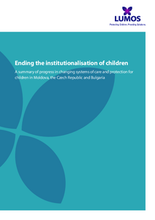Displaying 221 - 230 of 350
This study was designed to “identify factors that contribute to the educational success of children in care in Manitoba” and to “make recommendations regarding what schools, school divisions, and the provincial Department of Education and Advanced Learning could do to contribute further to the educational success of children in care.”
This information packet from the National Center for Child Welfare Excellence presents demographic data on pregnant youth in foster care and best practice tips for pregnancy prevention among youth in foster care in the US, as well as an overview of a model pregnancy prevention program and a list of additional resources.
This document, developed through a mapping exercise conducted by the National Council for Children’s Services (NCCS) and the Department of Children Services (DCS) of Kenya, provides a comprehensive list of the agencies and programs in Kenya that provide services for children.
This report aims to provide the basis for an agenda to improve university attendance among care leavers in Australia by highlighting the nature and extent of the problem, and suggesting practical solutions within both the education and community service sectors.
This booklet has been designed to help local authorities, schools and their partners work together to ensure they can provide every child, including looked after children, with the kind of positive learning experience which is the foundation for future success.
This study examines the consequences of the affective and educative nature of Romanian parents’ migration related to their children.
This document outlines Save the Children South Africa’s strategic ambitions for the period 2015 to 2020.
The current review collates research and policy regarding use of residential schools for children and young people with intellectual disabilities in the UK and transition from these settings to adult services.
This article discusses the effect of international migration on the accumulation of human capital among Mexican youths aged 15–18 who are left behind.
This report presents a summary of progress in Lumos’ first three country demonstration programmes – the Republic of Moldova, the Czech Republic and Bulgaria.

